About the Movie Soul, its Beauty and its Blemishes
Note: SPOILERS GALORE so skip this if you haven’t watched.
Disney and Pixar’s latest animated film Soul has been living rent-free in my head since I saw it last week.
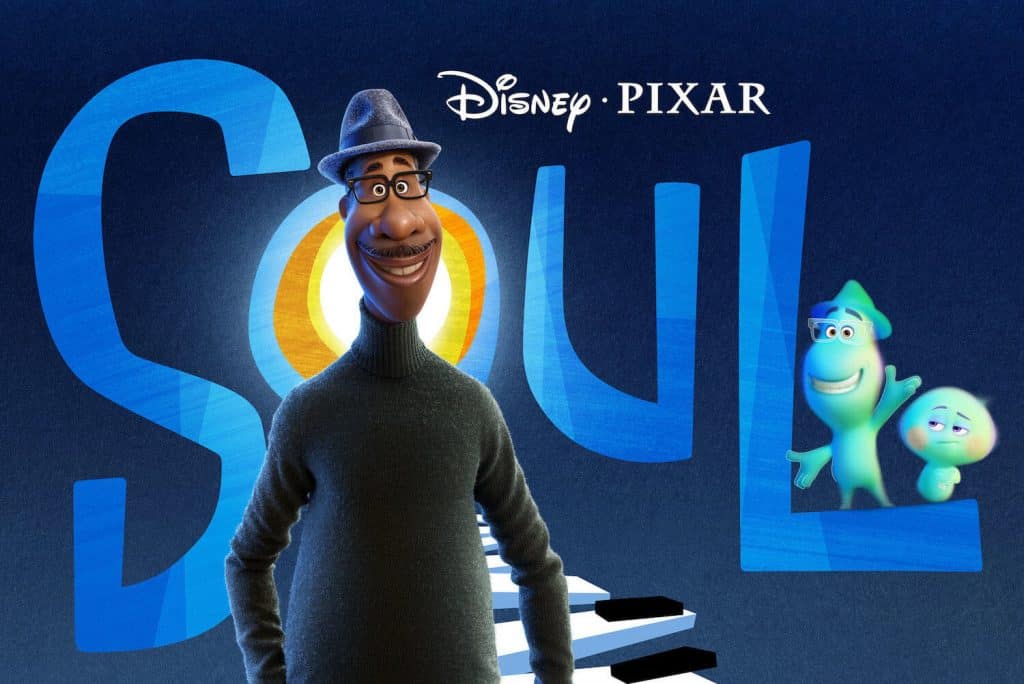
My first reaction was: I loved it. But then I started giving it more thought, even as my good feels kept going. Now, I’m a bit disappointed in what it could have been.
First, lemme talk about what I loved about it, and what made the film so good to me when I watched it: It’s beautiful. SOUL is a feast for your eyes. The animation is stunning, lush, bright. You will get lost in that world in wonderment because it just looks damb good!
And truly, Jamie Foxx is a man with gifts that are constantly underrated. As an actor and musician, Jamie is left out of legend conversations too much and it upsets me and my homegirls. The pairing of him and Tina Fey, another comedic icon is a good one, because they do play so well off each other. Keep this piece in mind when you read what I say further down.
In addition to that, the story is a philosophical adventure. It asks some really relevant questions about life, passion and purpose. It is a good conversation piece on what it looks like to live the life you want and the life that is full of color. I’m sure parents had some interesting convos with their kids after watching the film.
Soul, when taken by itself, is a beautiful story, but stories don’t exist in a vacuum. The critique that Disney/Pixar need to tell great stories where Black folks are humans THE WHOLE TIME is valid. I took to Facebook and people argued me down like I insulted their mama. That critique must be given space.
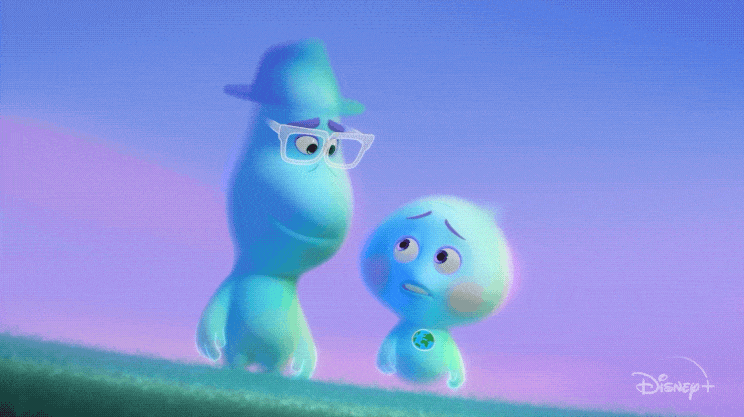
BUT beyond that, the other choice I wish was different in SOUL was the character 22. 22 was voiced by Tina Fey, and that character as a white woman added a real layer of cringe that could have been avoided. I think they should have made 22 a Black boy or girl. 22 being a white woman made it weird when you think about the fact that Joe Gardner lost his body to her when they fell down to Earth. He, instead, became a cat, AND THEN 22 TRIED TO STEAL HIS BODY after the day on Earth. That dynamic is not… ok. If 22 was a Black boy or girl, it would have added a message on mentorship, not us saving white folks.
Lemme pause here to say people are asserting that 22 was not “a white woman.” People arguing that 22 was “just a soul” are not being fully honest with us or themselves. You pictured a white woman as 22 even if you didn’t know it. Especially since that voice came out of Joe’s body in the earth scenes. The line of 22 saying it’s “anything” does not negate the optics or the connection. The decision to make 22 a white woman’s voice was to “annoy” was a cute joke but that could have been temporary. They wanted Tina to voice the character, and we cannot separate her whiteness from the character. So you didn’t know what color Donkey from Shrek was supposed to be, as he was voiced by Eddie Murphy? Now tell me it makes sense to assert that 22 was “just a soul without a race” when voiced by Tina Fey. 22 WAS A WHITE WOMAN.
Anywho, I think 22 should have been voiced and played by a Black boy or girl. It would have made that barbershop scene even more powerful, cuz it would have spoken about how important that space is to community building. The vulnerability, the humor, the storytelling in that scene were deeply touching. Imagine if the voice was of a young Black kid. It would have deepened the connection and meaning so much more if this story was more focused on Joe’s life, not the saving of 22’s soul.
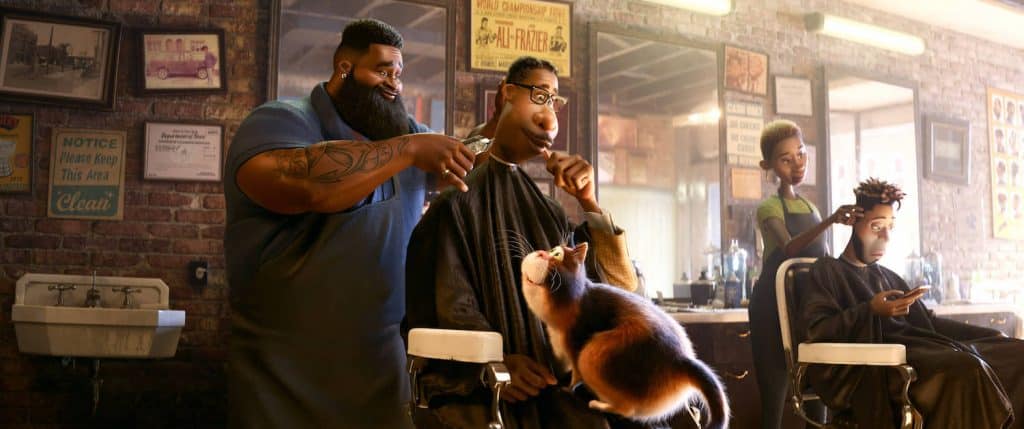
This was my fave scene of the film. Also: THIS ANIMATION. Wow.
When Joe told 22 “the only reason you found your spark was because you lived MY life…” Ain’t that a critique of all the white folks who blackfish? The storytellers should have found the truth in that line and went “what is this message we’re passing along?” Joe dying before the opening credits and spending most of the movie as a bodyless blob and then a cat is one major thing. But 22 being a white woman who stole his body is a huge problem. Then he sacrificed his life again to help her find her purpose. It’s the magical negro trope at play, whether they intended for it to be or not.
Soul was a beautiful film. But it also had some flaws that are worth pointing out. Just because it might have made us cry doesn’t mean we can’t have nuanced takes about certain pieces of it that don’t sit well. Two things can be true at once. What I am finding is that people are taking critiques of Soul PERSONALLY. It is okay to love it. You can LOVE IT. This is not an indictment on you or your taste. *I* loved it when I first watched it and it gave me good feels too. However, let’s be honest about the pattern it plays into, and the problems it brings up.
Representation matters, and we should not be quiet just because we see ourselves onscreen. HOW are we showing up when we are there?
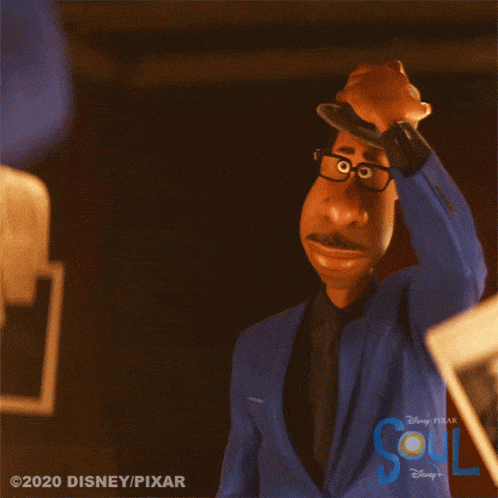
I would have loved to see more of him.
Again, this is not a critique of the actors, as I am a fan of Jamie and Tina. They did phenomenal jobs. This is not a critique of the animators. My goodness, this film should win awards for cinematography. This is not a critique of Kemp Powers, the Black writer brought in to help this story sing (after the plot was already fleshed out). He did his job and did it well. This is of a studio that makes choices that either tell incomplete stories or renders us invisible even when they think they’re giving us a platform. It is to point out the blind spots that are clear, and that if we don’t call out, giving leverage to someone who is at the table to say “Hey, we’re not being as thoughtful as we should be” would continue.
Disney and Pixar tell stories like no other. The studio that brought us UP and Inside Out and Coco, have perfected the art of art that moves us, inspires us and generates conversation. We’re now asking them to start creating art and stories where we keep our human form, and aren’t sidelined to tropes that decenter our lives.
The reason why we’re asking them to do better is that they are capable. And as the leading purveyors of narratives on screen, for decades, they have everything they need to make it happen.




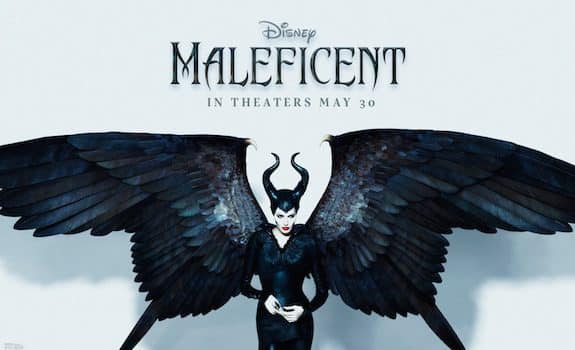
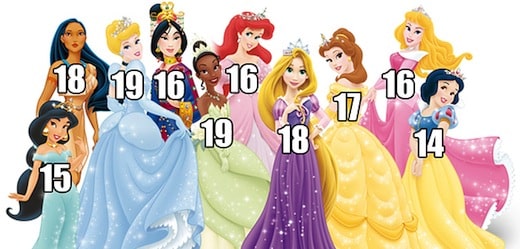
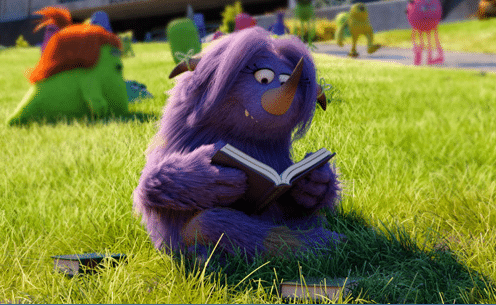
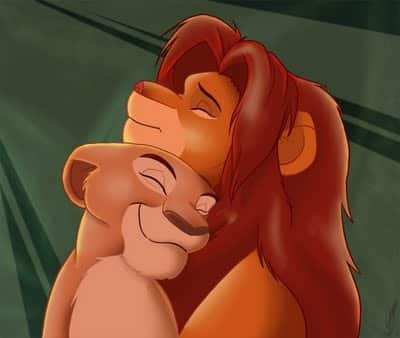
19 Comments
Unnnnnnngh I mean, there are a million reasons why diversity and inclusion are important, but this one is SO OBVIOUS! This…NEVER came up in the writers’ room? With the casting directors? NEVER??!??!?! In the year of our Lord 2020 and alllllllllll that has happened???? (Not that the bullshit is NEW, just that its reporting was so prevalent this year especially.) So either the staff and/or decision makers were too homogenous AND/OR anyone who did feel uncomfortable with SOMETHING SO EASILY FIXABLE didn’t feel comfortable speaking up about it.
A lot to love in that movie. Doesn’t mean it is above critique, and extremely legit critique at that. Blergh.
I agree with EVERY word!
something for me to think about.
…I wonder how if they picked another unique voice like Awkwafina or Eugenio Derbez if the same idea would’ve been addressed… but I don’t think a child voice actor would’ve worked, an adult made sense, Issa Rae would’ve been a cool choice. I haven’t listened to it in Spanish yet, but I wonder if that sentiment of disconnect still exist.
Thank you. I was wondering what was wrong with me when I didn’t full on love it later on when I had thoughts.
Beautifully written. Amazingly accurate.
perfect critique. on point and valid. both sides. beautiful but flawed.
This is a really hard reach. Lol.
You are arguing that one should view the film with nuance, but what you deem you are reading with, is actually presented very clearly and overtly in the film. It is very obvious that Joe’s body is inhabited by a soul that has chosen to masquerade as a white woman. I don’t think that is something that was lost on most anyone. So, to claim and explicate that obvious plot point as nuance is antethical to deeper analysis. A smokescreen, or perhaps and avoidance of engaging that harder question: White women are generally perceived to have done very wrong by black men, so how do we deal with, or even attempt to begin to reconcile that? There is a reading of this film that actually engages the complications of putting a white woman and a black man in conversation; a reading that actually takes on exactly what you are deeming a problematic situation. The film offers a place for the audience to actually engage the problematic situation by showing it at work for the majority of the story. It demonstrates that there is the possibility of connection between identities that are commonly sitated as diametrically opposed. Now, if we want to talk about the supposed problems with a white-branded character inhabiting a black body, we need to talk about the historical depth and context of that schema and be very specific about what the problem is. Is it that many black men were lynched at the work of white women? Is is that this affronting persists today in the form of the “Karen”? It is likely that and so much more and we must name it. It is not enough to simply state that it is problematic. Without specificity, we approach the danger of speaking of racial identity in platitudes. We can’t take clear steps forward as human race, if we are imprecise in what the steps actually are. If one is claiming to be analyzing the film with nuance then we must be specific about the context of the tropes being interrogated. This film has the potential to be read much more closely and deeply than you present, and I think what can be found in a closer reading addresses more foundational, nuanced, and important aspects of how opposing racialized identities can exist together. This is no easy feat. In fact, it is complex and uncomfortable. This film actually offers a place for that discomfort to inform a shift in perception if we actually take it for what it is: a hard situation that most people don’t want to depthfully talk about.
I still haven’t seen it because of this.
I am an avid, pre-pandemic, lover of movies. I saw over 60 on the big screen last year. I also love animation, when done well.
I still recall seeing the trailer for this, long before the pandemic. At first I was excited, and then my stomach went to my throat. I knew in the trailer that I was going to have issues with this movie.
In the meantime, I can just finish Cole’s I May Destroy You, Mcqueen’s Small Axe series, and Wolfe’s Ma Rainey’s Black Bottom. I already finished Rhimes’ Bridgerton.
I am sure I will get to this eventually.
I am glad to have read this review. I watched the movie last night & was admittedly triggered by the joke that 22 selected a white woman’s voice “because it annoys people”. A micro aggression in the nuance of being stated as fact,.. and WHY a “middle aged white woman”?? In reading Your review (among others), i am appreciating the greater value of the conversation – much within the vein of both Your and Davone Tine’s perspective above.
I can see why many disagreed with you, this was a reach. You’re asking a lot for a movie whose target audience is 7 year olds. You have your own platform write your own movie and put it out there if you want these specific themes to be addressed. It seems like you went into this movie looking for a reason to criticize it and you pulled this out of your butt.
“The critique that Disney/Pixar need to tell great stories where Black folks are humans THE WHOLE TIME is valid.”
Agreed. The same thing happens in Princess and the Frog, so you’d think Disney would’ve learned their lesson.
Also, I have to say that I don’t understand why it is necessary to say that the voice of a “middle-aged white woman annoys people.” There’s really nothing “cute” about it. Would it have been as funny if Wanda Sykes or Whoopi Goldberg had voiced 22 and the joke was, instead, that middle-aged black women’s annoy people? It isn’t funny. That is, it isn’t unless you’re just another racist of another color or a self-hating white person. There’s no need for racist jokes of any kind in a movie that targets 7-year-olds.
Correction: There’s really no need for racist jokes of any kind in any movie at all, but especially not in a movie for children. Are we just teaching the next generation to be racist in a new way? Good job.
Well put Nathan,.. and i 100% agree. A teacher in my family recently informed me that studies find children don’t fully grasp sarcasm – hell as an adult i grapple with it plenty. There is simply no place for racist or sexist jokes in children’s movies. That one was both – with a bit of an ageism on the side. The movie was tackling some existential topics. I had high hopes for it and then faith throughout that there would be a solid message in the end. I believe they made an mistake by including those attributes and that joke on the 22 character when this movie was not designed to address that specific aspect of sexism, racism, or privilege. I am all about the platform for discussion, even in children’s movies – but not if you are not planning to address the topics head on.
Thank you for this solid argument, which pointed out an aspect of the story that hadn’t fully gelled in my head (I watched it with my kids on new year’s and then went up to put them to bed.) I really see your point that he sacrificed his soul to give her a life, and I like how you suggested a solution (because all problematic stories need a solution)–to have 22 voiced by a kid of color. Anyone would do well to consider how one’s passion fits in the trajectory of their life, especially people whose families might encourage them to pursue stable lives over passionate ones. And I agree that I can hold the problematic nature of this film alongside the fact that it had many beautiful and unseen elements (although I think Inside Out was in many ways a better-plotted version of Soul, and that Soul felt a little like the leftovers.)
You must be white. Inside out is beloved by basic white people, and Soul is more beloved by black people, which is why Luvvie got so much pushback when she tried it.
Luvvie is looking to pander to liberal white audiences so she tries to shoehorn racism everywhere to appeal to your sense of white guilt. Black Americans largely cancelled her after it came out that she called us a racial slur. I still like her so I’m trying to give her a chance but her praising Inside Out the white story about a privileged white girl whose biggest drama is she had to move, while crapping on the black story Soul that was so rich with big themes about what it means to be alive and live, may be the last straw for me.
I disagree for a pretty simple reason. Having a white so man play 22 showed us that a white woman can absolutely learn a lot from a black man and more so (as seen in the barber shop scene) the black community. Plus it made that scene all the more beautiful to show how wonderful diversity can be. We can not push for diversity and then want a mono racial cast for films.
I appreciate that you are telling the truth as usual, Luvvie. I admit as a white woman, I hesitate to comment at all. I appreciate you continuing to share your truth and begin awkward conversations that MUST be had about race.
I disagree with your points because you completely missed the part of the movie where Joe only agreed to help 22 because he wanted to steal the patch to go to Earth from her. He wasn’t really trying to be a mentor to her, and he was just using her as a means to an end. Joe is a natural teacher so he did end up teaching her inadvertently. 22 did want Joe’s life but he was planning on stealing from her too. Neither one of them has the moral high ground here.
I’m tired of stories with black people that only show pain and trauma. Can’t we just be people for chrissakes?! Joe’s story was universal; anyone in the world could watch this and identify with an aspect of Joe’s life. The fact that you wanted Pixar to throw in pain, trauma and blackfishing to satisfy your need for pain porn says a lot about you. I’m happy Pixar didn’t go this route, it’s hard enough for our kids out there as it is without mainstream movies geared towards children reinforcing harmful tropes.